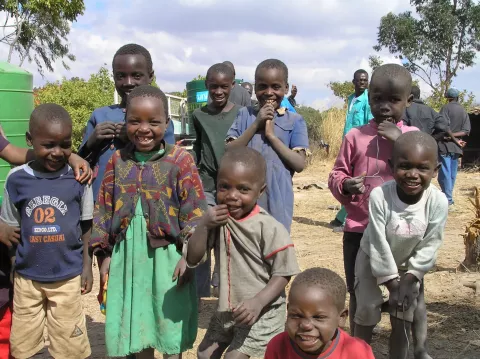By Fanuel Chinowaita
Harare, Zimbabwe – 24 January 2025
A staggering 242 million students in 85 countries faced interruptions in their education due to extreme climate events in 2024, according to a report released by UNICEF on International Day of Education.
The report, titled Learning Interrupted: Global Snapshot of Climate-Related School Disruptions in 2024, highlights the devastating impact of heatwaves, cyclones, floods, and storms on global education systems.
South Asia was the hardest-hit region, with 128 million students affected by climate-related disruptions. East Asia and the Pacific saw 50 million students impacted, while Southern Africa experienced severe droughts linked to El Niño. In Mozambique, cyclones Chido and Dikeledi alone disrupted education for 150,000 students.
“Children are uniquely vulnerable to the impacts of weather-related crises,” said UNICEF Executive Director Catherine Russell. “Severe weather kept one in seven students out of class last year, threatening their health, safety, and long-term education.”
In fragile contexts like Afghanistan, extreme weather compounded existing challenges. Over 110 schools were destroyed by flash floods, while rising temperatures forced South Asian countries to shorten school days. Girls, in particular, faced heightened risks of dropping out, child marriage, and gender-based violence during such disruptions.
The report also revealed that 74% of the affected students were in low and lower-middle-income countries, but no region was spared. In September, torrential rains in Italy disrupted schooling for 900,000 students, underscoring the global nature of the crisis.
Despite the escalating challenges, UNICEF noted that education systems remain ill-prepared to cope. Climate-resilient infrastructure and disaster-responsive policies are urgently needed. UNICEF has supported the construction of over 1,150 climate-resilient classrooms in Mozambique, a model it urges other nations to adopt.
UNICEF called on governments and the private sector to strengthen climate-focused social services, invest in disaster-resilient learning facilities, and integrate climate change education into national policies.
“Education is frequently disrupted by climate hazards yet remains overlooked in policy discussions,” said Russell. “Children’s futures must be at the forefront of all climate-related plans and actions.”
As Zimbabwe grapples with its own climate vulnerabilities, policymakers are urged to draw lessons from UNICEF’s report to safeguard education for future generations.

